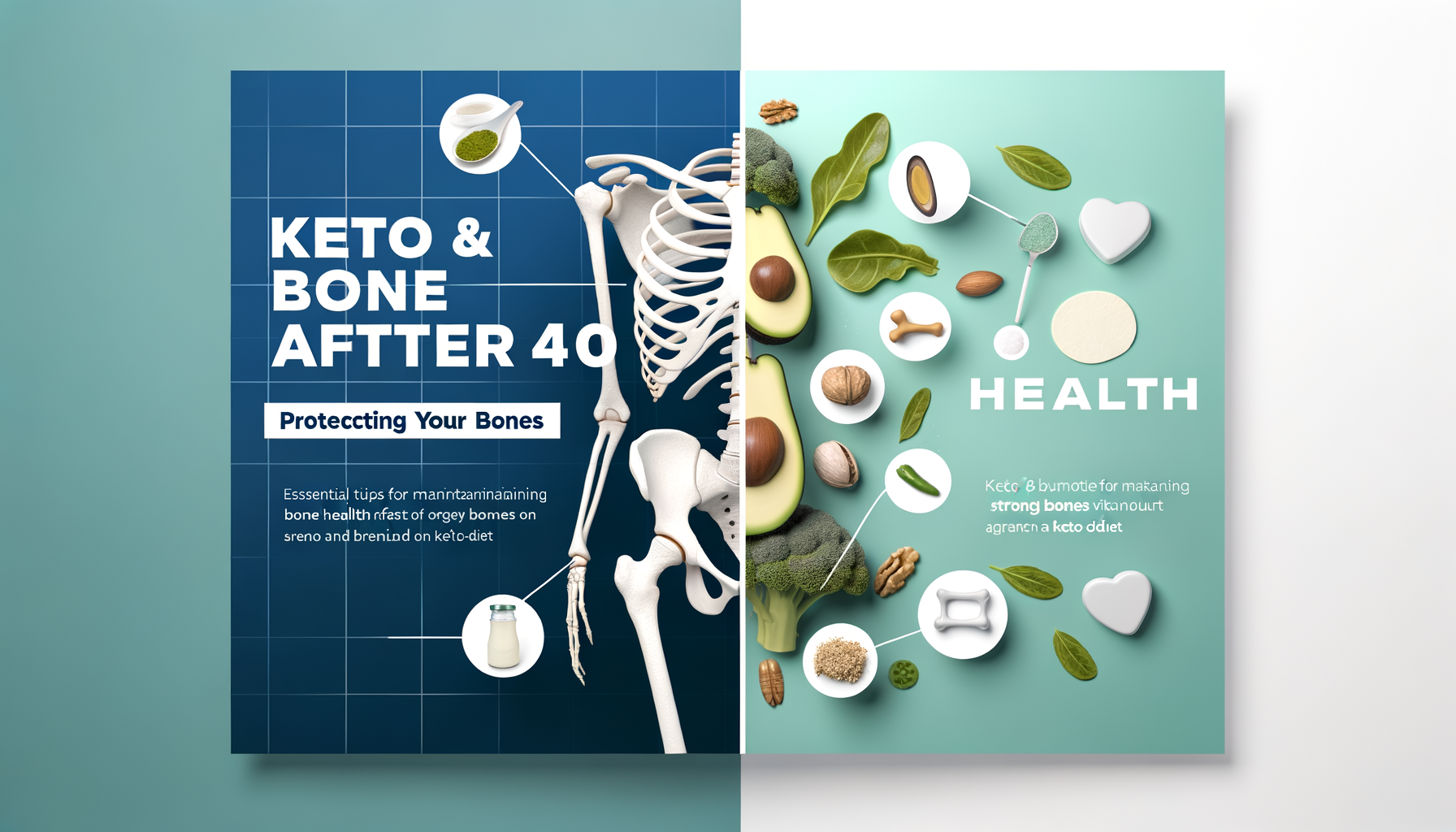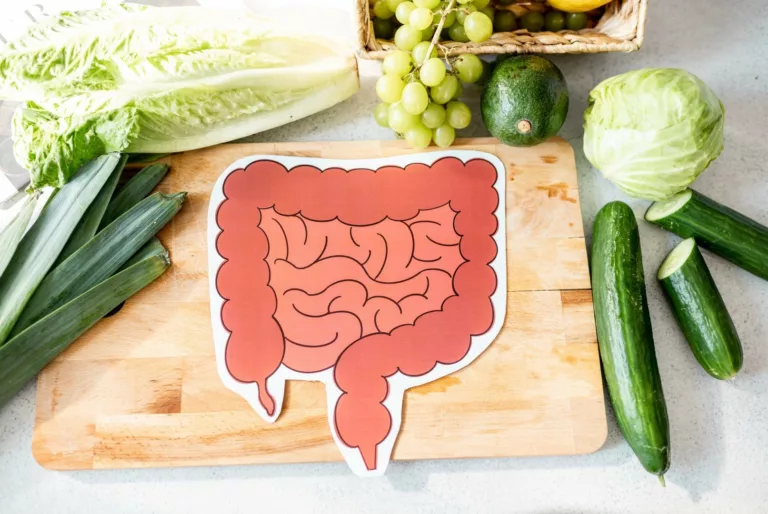As we age, maintaining strong bones becomes a top priority, especially after 40 when bone density naturally begins to decline. If you’re following a ketogenic diet, you might wonder how it affects your bone health. “Keto and Bone Health after 40: Protecting Your Bones After 40” delves into the crucial connection between keto and maintaining strong, healthy bones as you age. In this article, we’ll explore how you can optimize your keto diet to support bone health and prevent potential issues. Ready to discover how keto can help you protect your bones and stay strong after 40? Keep reading to uncover the essential strategies for safeguarding your skeletal health.
Understanding the Ketogenic Diet
Immerse ourselves we must, initially, into the intricate workings at the core of what is often referred to as simply Keto more formally known as Ketogenic Diet. The main attributes of this diet are a low intake of carbohydrates, balanced consumption levels of protein, and heightened inclusion rates for fats. A metabolic state termed ‘ketosis’ forms the crux of its objective. In this stage, your body taps into stored fat for energy instead of depending on glucose from carbohydrate intake.
Originally formulated as an aid in epilepsy management, the ketogenic diet has since garnered substantial attention due to potential health benefits that have been linked with it; these include weight reduction, cognitive function enhancement, and even a surge in energy levels. It’s crucial not to overlook that while the transitional phase – where your body switches from using glucose to ketones for fuel – can pose initial challenges for some individuals; many testify to experiencing an upliftment in mental clarity and overall physical well-being post making this switch.
The Impact of Age on Bone Density
The tale of bone density is one filled with perplexity and burstiness, a narrative that echoes the ebb and flow of life itself. It speaks to the concentration of calcium along with other minerals within a given volume of bone, showcasing its direct connection to strength and resilience.
Consider it as an ever-evolving process; bone remodeling unfolds throughout our existence, creating a swelling crescendo until around 30 to 35 years – denoting the zenith of bone mass. However, like many stories in nature, this balance shifts subtly yet progressively as we journey further into the realms of age. The scales tip towards bone loss surpassing formation activity resulting in an overall decline in our heroes’ density.
Beneath this pattern are numerous variables at play contributing to this age-related saga of diminishing bone density. A significant protagonist emerges from hormonal changes – particularly diminished estrogen levels found amongst postmenopausal women proved central roles in escalating resorption whilst curtailing new growth rates.
Yet these hormonal influences do not operate alone; myriad other elements such as dwindling physical activity or insufficient nutrition enter the stage left alongside certain medications playing villainous parts impacting negatively on our hero’s health.
Therefore aging’s role cannot be understated when discussing impacts on bone density – it can indeed wield considerable influence upon both an individual’s state of being and their quality-of-life experience.
How a Low-Carb Diet Affects Bone Strength after 40
The enigma of low-carb diets, such as the ketogenic diet, and their interplay with bone strength is intricate. The body’s response to a reduction in carbohydrate consumption can instigate shifts in the hormones that govern bone wellness. Insulin – an essential hormone influenced by low-carb diets – assumes a remarkable role in bone remodeling; a cyclic process of bone resorption and formation vital for preserving bone density. As a result, diminished insulin levels brought on by dietary carbohydrate paucity may meddle with the health of bones.
Conversely, ketogenic diets – one style of low-carb routine – augment the body’s proficiency at absorbing calcium; an indispensable nutrient for robust bones. The condition known as ketosis elicited by curbing carbohydrate intake while amplifying fat ingestion has been proposed to enhance calcium absorption within the intestines. Such escalation in calcium usage could prove advantageous for sustaining skeletal strength, counteracting any potentially detrimental impacts that lowered insulin levels might impose on bone remodeling processes. This double-pronged effect underlines the multifaceted dynamics encapsulating how a low-carb diet influences skeletal strength.
Nutrition Needs for Optimal Bone Health

Our skeletal framework demands a unique assembly of nutrients to conserve its health and functionality. Among these crucial elements are calcium, vitamin D, protein, and magnesium. The human body has an abundance of calcium – the primary mineral that plays a pivotal function in maintaining bone well-being. It bolsters bones and teeth while playing an indispensable role in blood clotting, muscle contraction plus nerve function. While calcium’s impact on bone health is widely recognized, less understood is the fact that optimal bone health isn’t achievable through adequate intake of just this one nutrient.
Beyond just calcium, our bodies necessitate vitamin D for the effective absorption of said mineral into our system. Intriguingly enough, Vitamin D can be self-manufactured by our bodies when subject to sunlight exposure. Certain food sources such as fatty fish species, bovine liver; and even egg yolks provide us with this vital nutrient too! Protein holds no lesser significance when it comes to bone wellness – constituting around half the volume of bones and about one-third of their mass.
Magnesium commands dominance over converting Vitamin D into its active state which then allows effective absorption of calcium by our systems. Other key players like phosphorus along with vitamin K contribute significantly towards maintaining healthy bones too! Therefore it remains undeniable: good nutrition forms the bedrock upon which robust skeletal structures are built.
>>> Check this post for Keto Diet Supplements After 40
The Role of Ketosis in Calcium Absorption
In the throes of a ketogenic state, our bodies undergo a labyrinthine array of metabolic transformations. Among these, there is an intriguing shift in how calcium – that fundamental mineral with profound implications for bone health – is absorbed.
The scenario unfolds when carbohydrates are drastically curtailed from one’s diet. As if set on a different course altogether, the body plunges into ketosis and begins to burn fat rather than glucose as its principal fuel source. This metabolic metamorphosis shapes anew how calcium processing and absorption goes about within our bodies.
The narrative becomes more complex with the introduction of parathyroid hormone – an agent paramount to the plotline of calcium metabolism. In ordinary conditions, this hormone deftly manages calcium levels by stimulating its release from bone reserves when necessity arises. However, under ketotic forces at play during dietary carbohydrate scarcity, something appears to change in this familiar tale.
As it turns out, even the parathyroid hormone seems to dance differently in tune with lower insulin levels stemming from ketosis; thereby accelerating calcium absorption rates within our gut. Such phenomena might serve as additional armor for our skeletal system but this unconventional interplay between ketosis and calcium absorption remains an enigmatic territory warranting further exploration.
Vitamin D and K: Key Players in Bone Protection
Bewildering as it may seem, Vitamin D is a fundamental nutrient that stands at the heart of bone health, its role being to assist in absorbing calcium and phosphorus from the intestines – vital components for robustness and structure. It’s intriguing how our bodies naturally manufacture this vitamin when basking directly in sunlight. Hence it becomes indispensable to allot time for some sun exposure or ponder upon dietary sources like fatty fish, beef liver, or certain types of mushrooms. A deficiency can lead to bone frailty since this nutrient is critical for calcium absorption – thereby hurting bone density.
On the other hand, Vitamin K operates subtly within the complex framework of bone-building but holds a significant position nonetheless. Intriguingly, it bolsters bone health by keeping tabs on calcium levels and stimulating protein production crucial for maintaining solid structures. An interesting fact about Vitamin K is its contribution towards preventing fractures, osteoporosis, and overall loss of bones—research points towards a possible combined effect with Vitamin D that could enhance bone health significantly more than each would individually.
Green leafy vegetables along with fermented foods happen to be rich reservoirs of Vitamin K; thus making them perfect candidates for inclusion in ketogenic diets.
Exercise and the Ketogenic Diet: A Potent Combination for Bone Health
In the realm of bone health promotion, a compelling synergy is noted when the ketogenic diet – characterized by high-fat, low-carb properties – mingles with regular bouts of physical exercise. This extraordinary potential arises from a dynamic interplay between these two elements: lean proteins inherent in the ketogenic diet are critical for building and replenishing bodily tissues, bones included; meanwhile, routine exercise amplifies nutrient absorption through catalyzing new bone formation. The upshot? A gradual increase in bone density and strength over time.
On another intriguing note, ketosis – an altered metabolic state induced by this very diet – could wield influence over systemic inflammation levels. By extension, it may play a role in reducing susceptibility to osteoporosis or other conditions leading to skeletal degradation. In parallel with this process,… lo and behold!… Physical activity steps into action as well: it boosts metabolism rate during this unique metabolic state which results in more efficient usage of vitamins and minerals crucial for solidifying our skeleton structure.
However intriguing these connections might appear, they reside in largely uncharted territory within scientific exploration. It emphasizes an imperative need for further comprehensive research that delves deeper into decoding relations between ketogenic diets, physical activity patterns, and their combined impact on skeletal robustness.
>>> Check our Keto Friendly exercises after 40
Addressing Common Concerns: Is Keto Safe for Your Bones?
A prevalent but misguided belief insinuates that the embracement of a ketogenic diet may imperil the robustness of our bones. This proposition springs from the notion that while this dietary regimen is laden with proteins and fats, it falls short in providing ample calcium – an indispensable constituent for bone fortitude. Detractors put forth the idea that acidic edibles sourced from animal proteins within a high-fat, low-carb sustenance plan could sap calcium off one’s bones, thereby potentially amplifying osteoporosis and fracture risks.
However, juxtaposing this ideology are contemporary studies showcasing an alternative viewpoint: a meticulously devised ketogenic diet might indeed bolster bone health. These findings carry an important caveat; inclusion of nutrient-rich victuals like leafy greens and sardines – potent reservoirs of calcium – should be part of such diets.
Further adding to this argument is the observation that ketosis itself aids in facilitating the absorption of calcium among other vital minerals into our skeletal framework. Even so, it remains critical to acknowledge individual variations in nutritional requirements; hence professional counsel should be sought before undertaking any radical alterations in one’s eating habits.
Practical Tips to Follow a Bone-Healthy Keto Diet
In the complex labyrinth of a bone-friendly ketogenic diet, it becomes paramount to weave in generous helpings of verdant leafy vegetables. These chlorophyll-laden plants are treasure troves of minerals like calcium and magnesium, vital for fortifying the skeletal system. Simultaneously, they fulfill your body’s fiber cravings while maintaining unwavering obedience to the strict carbohydrate restrictions imposed by this particular dietary regimen. Perhaps consider an infusion of kale, spinach, or Swiss chard into your next sumptuous meal.
Within the context of fats in a keto diet lies an intriguing dichotomy; not all fats wear the same mantle. You must gravitate towards healthful fats such as those ensconced within avocados, algae oil, and flax seeds. The nutritional wealth harbored by these foods plays a pivotal role in bolstering bone health. In addition to their richness in nutrients essential for bones’ wellness, they are teeming with Omega-3 fatty acids lending additional credibility to their suitability for a robust ketogenic lifestyle conducive to strong bones.
Success Stories: People Over 40 Thriving on Keto
Immersing ourselves within the realm of Ketogenic diet victories, we encounter remarkable persons in their fourth decade and onwards who have witnessed dramatic health alterations. They emphasize Keto’s power to beneficially impact various health aspects, ranging from elevated energy levels to proficient weight loss. An intensive exploration into their pathways unveils how this high-fat, low-carb regimen has transformed not just their physical appearances but also their existences. It empowers them to remain vibrant and uphold a wholesome lifestyle well past 40.
One such character is Sarah; a Chicagoan mother-of-two at age 45. Launching herself into the Keto way of life was her strategy for reclaiming control over her escalating weight and erratic blood sugar figures. Following a year under the Keto regime, it wasn’t merely an astonishing disappearance of 60 pounds that Sarah experienced but also stabilization of her blood sugar readings.
She communicates feeling more vivacious, physically agile, and mentally sharp more often than not now. She highlights maintaining optimal calcium absorption during the ketosis metabolic state alongside ensuring Vitamin D & K intake as crucial factors contributing to her improved bone well-being. Among countless others above forty thriving on Keto practice, Sarah’s tale modifies the dialogue surrounding dieting, wellness, and aging.
References :
– NIH: Effects of the ketogenic diet on bone health: A systematic review
FAQ: Keto and Bone Health After 40
What is the enigma of the Ketogenic Diet?
The ketogenic diet, a paradoxical regimen of low-carb and high-fat foods, nudges our body into an uncanny mode to burn fat instead of carbs for energy.
How does age cast its shadow on bone density?
As we journey through life’s path, bone density naturally recedes like a setting sun, rendering bones vulnerable to fractures and breaks.
Can a limited carb intake shake up bone strength?
Indeed! Studies have indicated that carb-restricted diets may rattle bone strength by meddling with the body’s absorption mechanisms for calcium and other vital nutrients required for sturdy bones.
What are the nutritional cornerstones for prime bone health?
To fortify your skeletal structure, it’s essential to ensure an adequate supply of calcium, vitamin D, and K along with other critical elements such as protein, magnesium, and zinc.
Does ketosis sway calcium absorption?
Aye! Ketosis —the metabolic shift triggered by ketogenic meals— could potentially enhance calcium uptake in our system which plays a crucial role in reinforcing our bones.
What roles do vitamins D &K play as guardians of our skeletons?
The two custodians Vitamin D & K work together -D facilitates better absorption of calcium while K ensures this absorbed mineral binds effectively onto your bones; both being pivotal players in maintaining robustness within one’s skeleton.
Is physical exertion beneficial when paired with a keto diet for promoting healthy bones?
Certainly! Regular exercise acts as a perfect ally alongside a ketogenic diet creating a formidable duo towards bolstering bone health. Exercise has been found instrumental in stimulating new growths thus enhancing overall density
Is venturing down the road less traveled i.e., a keto-diet considered a safe bet when it comes to maintaining a strong skeleton
Although there could be potential pitfalls, a ketogenic diet can indeed be navigated safely about bone health provided it’s treaded upon wisely. It’s vital to ensure that you’re adequately supplied with the necessary nutrients for sturdy bones
Do you have any pearls of wisdom on adhering to a keto diet while keeping in mind the well-being of our bones?
Absolutely! One can successfully navigate through the maze of maintaining a bone-healthy ketogenic lifestyle by ensuring enough intake from nutrient-packed food sources, incorporating regular weight-bearing exercise, and getting sufficient vitamins D & K.
Can you spill some beans about triumphant tales of keto-dieters over 40?
Of course! In this article, we’ve highlighted inspiring anecdotes about individuals who’ve crossed the fourth-decade mark and yet managed to boost their vitality by embracing a ketogenic lifestyle.






